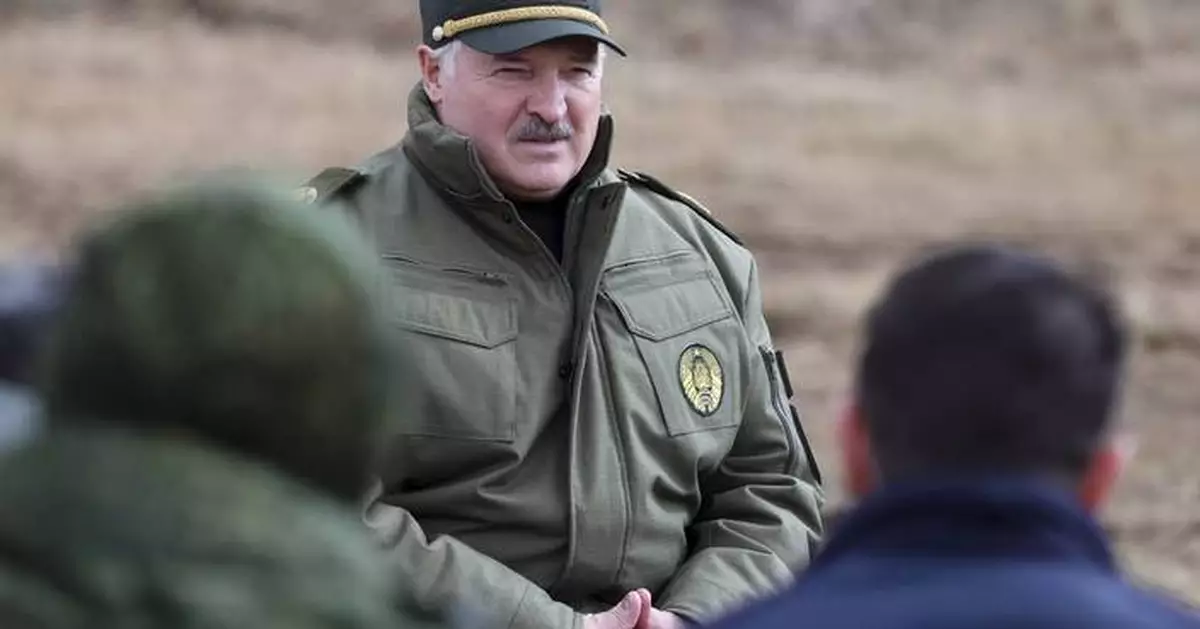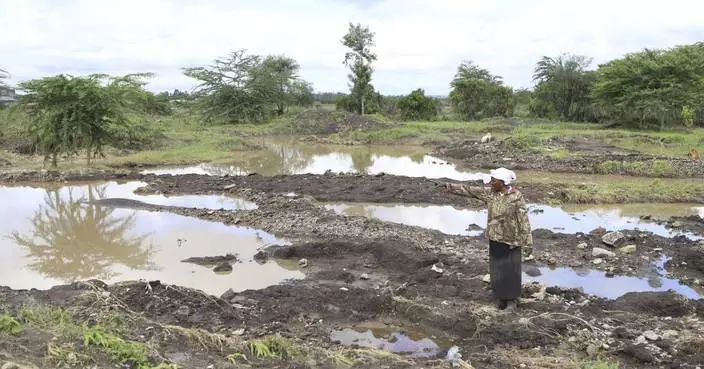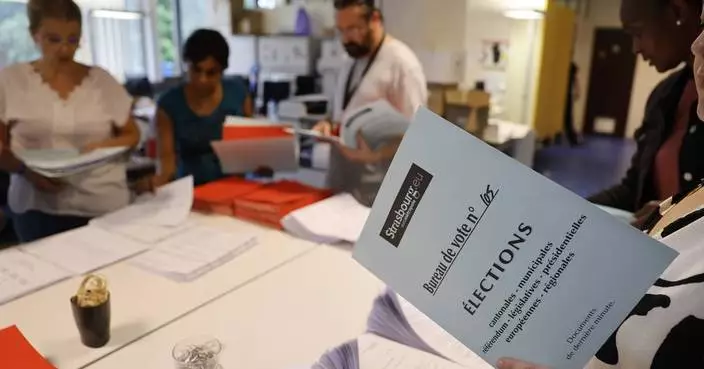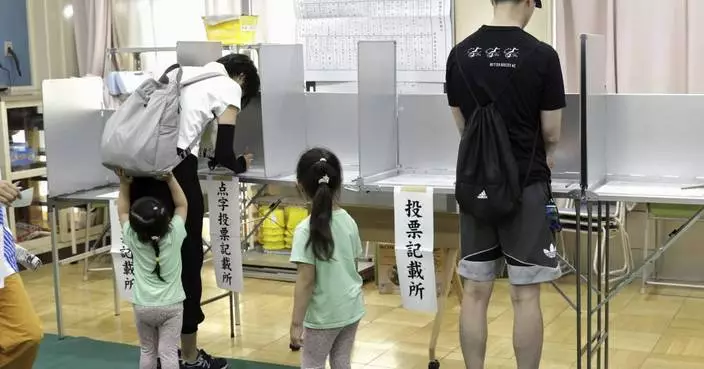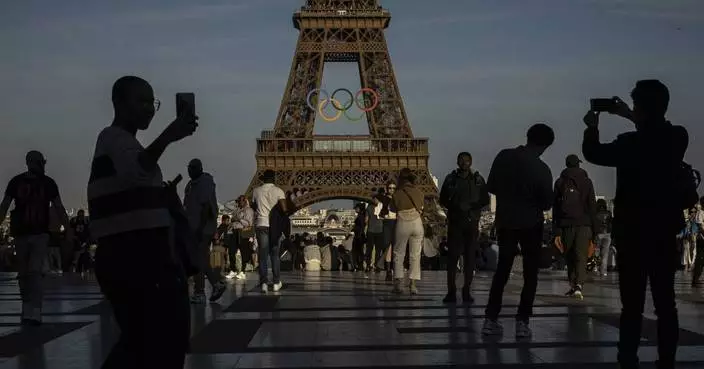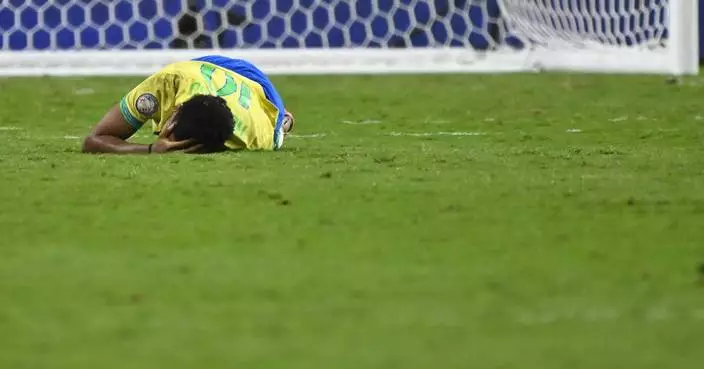TALLINN, Estonia (AP) — A Belarusian human rights group said Thursday that at least 10 political prisoners have been freed since the country's authoritarian president this week promised to release seriously ill people jailed in connection with massive protests nearly four years ago.
Pavel Sapelko of the Viasna rights group told The Associated Press that none of those released are well-known figures whose release has been sought by the West.
Viasna counts more than 1,400 political prisoners in the country, including Viasna's Nobel Peace Prize-winning founder Ales Bialiatski.
Ryhor Kastusiou, a cancer-stricken opposition leader who had run against President Alexander Lukashenko in elections in 2010, was released on Wednesday, Sapelko said, but he declined to give the names of others who were let out.
“We expected a large-scale amnesty with hundreds of people released, but we are seeing only isolated cases,” Sapelko said. “The repressions in the country continue and in these days, in place of the ten released, the authorities have imprisoned twenty new arrestees.”
Lukashenko has consistently suppressed opposition and independent news media since becoming president in 1994, but the measures became more intensive as protests gripped the country after the 2020 presidential election whose disputed results gave Lukashenko a sixth term in office.
The crackdown forced many opposition figures to flee into exile, including Sviatlana Tsikhanouskaya who ran against Lukashenko in 2020.
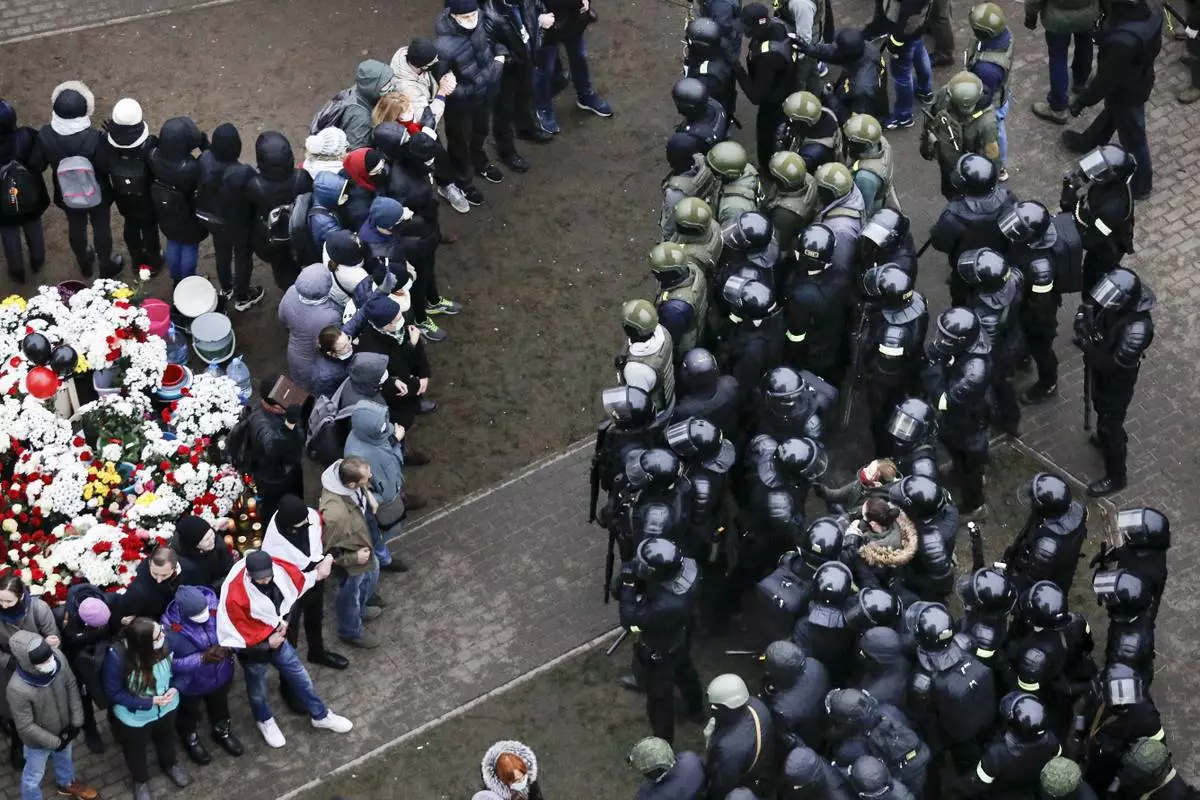
FILE - Belarusian riot police block demonstrators gathered to honor 31-year-old Raman Bandarenka, who died at a Minsk hospital after several hours of surgery due to serious injuries, during an opposition rally to protest the official presidential election results in Minsk, Belarus, on Nov. 15, 2020. A Belarusian human rights group said Thursday, July 4, 2024 that at least 10 political prisoners have been freed since the country's authoritarian president this week promised to release seriously ill people jailed in connection with massive protests nearly four years ago. (AP Photo, File)
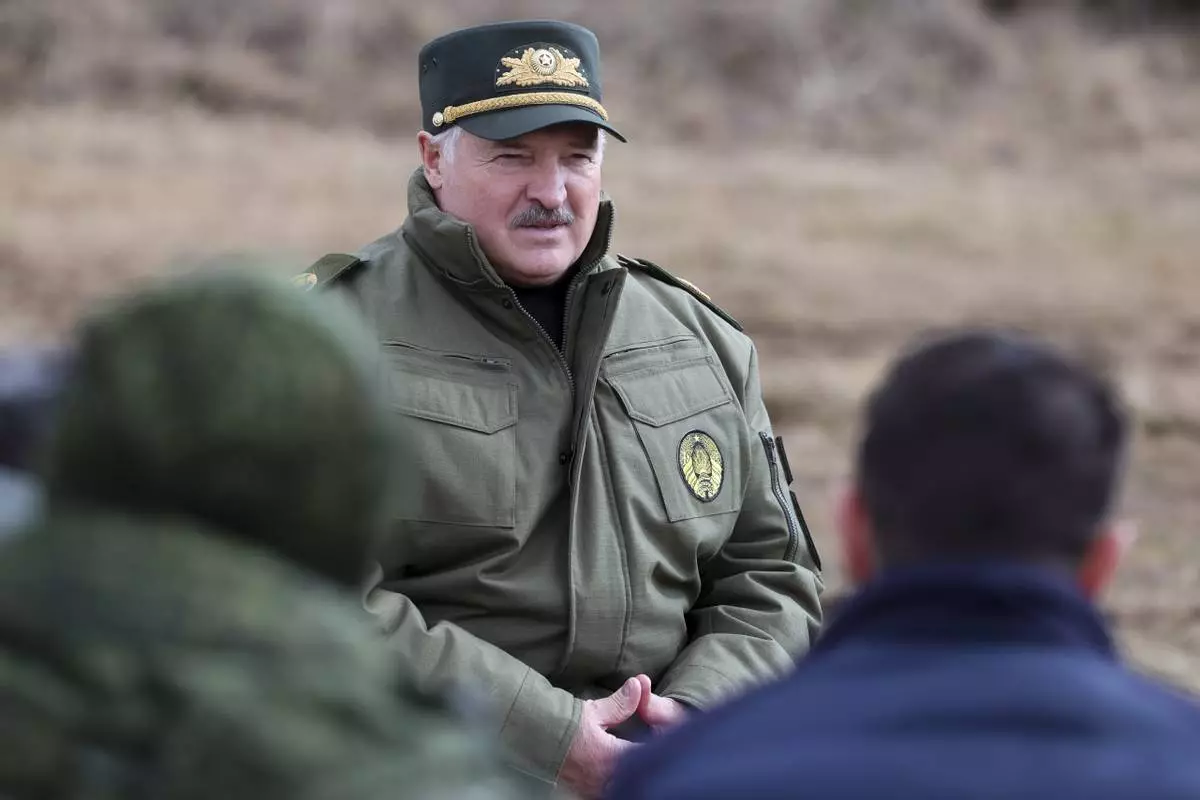
FILE - In this photo provided by the Belarusian Presidential Press Service, Belarus President Alexander Lukashenko speaks to military personnel during his visit to Oshmyany District, Grodno region of Belarus on March 26, 2024. A Belarusian human rights group said Thursday, July 4, 2024 that at least 10 political prisoners have been freed since the country's authoritarian president this week promised to release seriously ill people jailed in connection with massive protests nearly four years ago. (Belarusian Presidential Press Service via AP, File)
PARIS (AP) — Voting has begun in mainland France on Sunday in pivotal runoff elections that could hand a historic victory to Marine Le Pen’s far-right National Rally and its inward-looking, anti-immigrant vision — or produce a hung parliament and years of political deadlock.
French President Emmanuel Macron took a huge gamble in dissolving parliament and calling for the elections after his centrists were trounced in European elections on June 9.
The snap elections in this nuclear-armed nation will influence the war in Ukraine, global diplomacy and Europe’s economic stability, and they’re almost certain to undercut President Emmanuel Macron for the remaining three years of his presidency.
The first round on June 30 saw the largest gains ever for the anti-immigration, nationalist National Rally, led by Marine Le Pen.
A bit over 49 million people are registered to vote in the elections, which will determine which party controls the National Assembly, France's influential lower house of parliament, and who will be prime minister. If support is further eroded for Macron’s weak centrist majority, he will be forced to share power with parties opposed to most of his pro-business, pro-European Union policies.
Racism and antisemitism have marred the electoral campaign, along with Russian cybercampaigns, and more than 50 candidates reported being physically attacked — highly unusual for France. The government is deploying 30,000 police on voting day.
The heightened tensions come while France is celebrating a very special summer: Paris is about to host exceptionally ambitious Olympic Games, the national soccer team reached the semifinal of the Euro 2024 championship, and the Tour de France is racing around the country alongside the Olympic torch.
The elections wrap up Sunday at 8 p.m. (1800 GMT) in mainland France and on the island of Corsica. Initial polling projections are expected Sunday night, with early official results expected late Sunday and early Monday.
Voters residing in the Americas and in France’s overseas territories of Saint-Pierre-et-Miquelon, Saint-Barthélemy, Saint-Martin, Guadeloupe, Martinique, Guyana and French Polynesia voted on Saturday.
The elections could leave France with its first far-right government since the Nazi occupation in World War II if the National Rally wins an absolute majority and its 28-year-old leader Jordan Bardella becomes prime minister. The party came out on top in the previous week's first-round voting, followed by a coalition of center-left, hard-left and Green parties, and Macron’s centrist alliance.
But the outcome remains highly uncertain. Polls between the two rounds suggest that the National Rally may win the most seats in the 577-seat National Assembly but fall short of the 289 seats needed for a majority. That would still make history, if a party with historic links to xenophobia and downplaying the Holocaust, and long seen as a pariah, becomes France’s biggest political force.
If it wins the majority, Macron would be forced to share power in an awkward arrangement known in France as "cohabitation."
Another possibility is that no party has a majority, resulting in a hung parliament. That could prompt Macron to pursue coalition negotiations with the center-left or name a technocratic government with no political affiliations.
Both would be unprecedented for modern France, and make it more difficult for the European Union’s No. 2 economy to make bold decisions on arming Ukraine, reforming labor laws or reducing its huge deficit. Financial markets have been jittery since Macron surprised even his closest allies in June by announcing snap elections after the National Rally won the most seats for France in European Parliament elections.
Regardless of what happens, Macron said he won’t step down and will stay president until his term ends in 2027.
Many French voters, especially in small towns and rural areas, are frustrated with low incomes and a Paris political leadership seen as elitist and unconcerned with workers' day-to-day struggles. National Rally has connected with those voters, often by blaming immigration for France's problems, and has built up broad and deep support over the past decade.
Le Pen has softened many of the party's positions — she no longer calls for quitting NATO and the EU — to make it more electable. But the party’s core far-right values remain. It wants a referendum on whether being born in France is enough to merit citizenship, to curb rights of dual citizens, and give police more freedom to use weapons.
Surk reported from Nice, France.
Follow AP’s global election coverage at https://apnews.com/hub/global-elections/
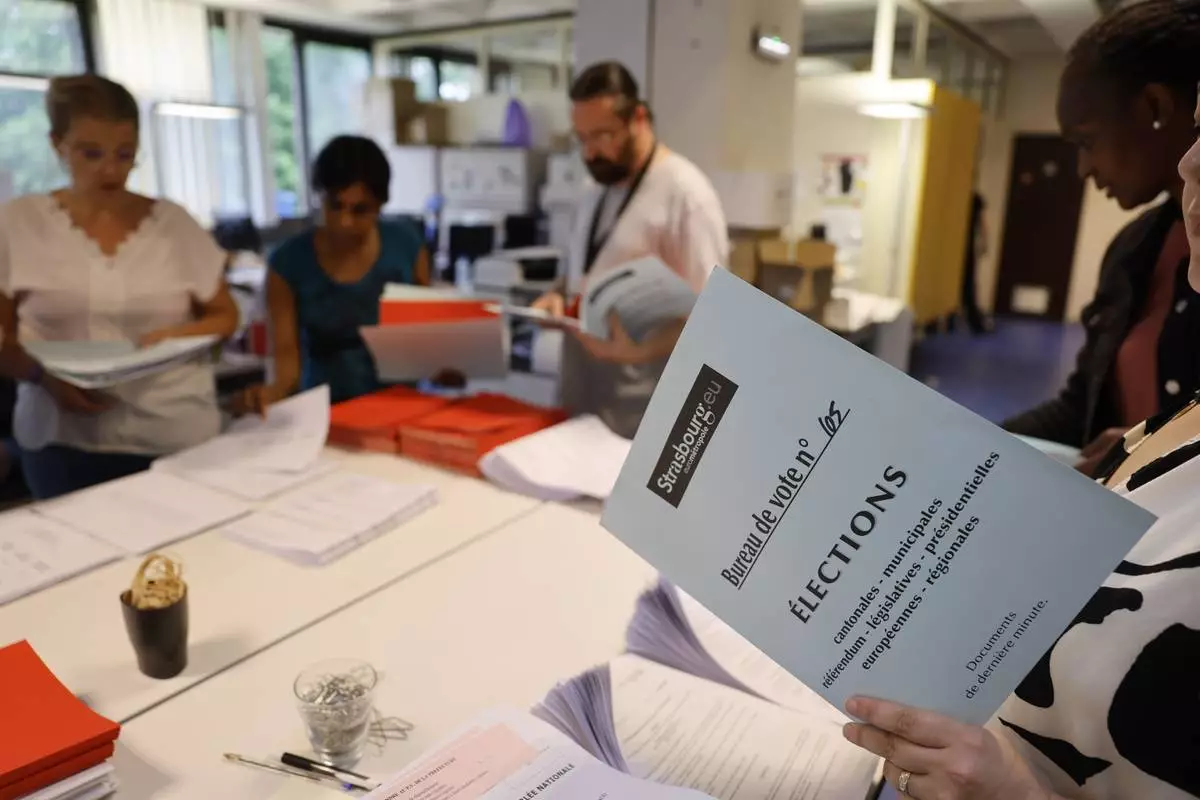
Local city officials prepare voting kits for the legislative election in Strasbourg, eastern France, on Saturday, July 6, 2024. Voters face a decisive choice in the runoff Sunday of snap parliamentary elections that could produce the country’s first far-right government since the World War II Nazi occupation. (AP Photo/Jean-Francois Badias)
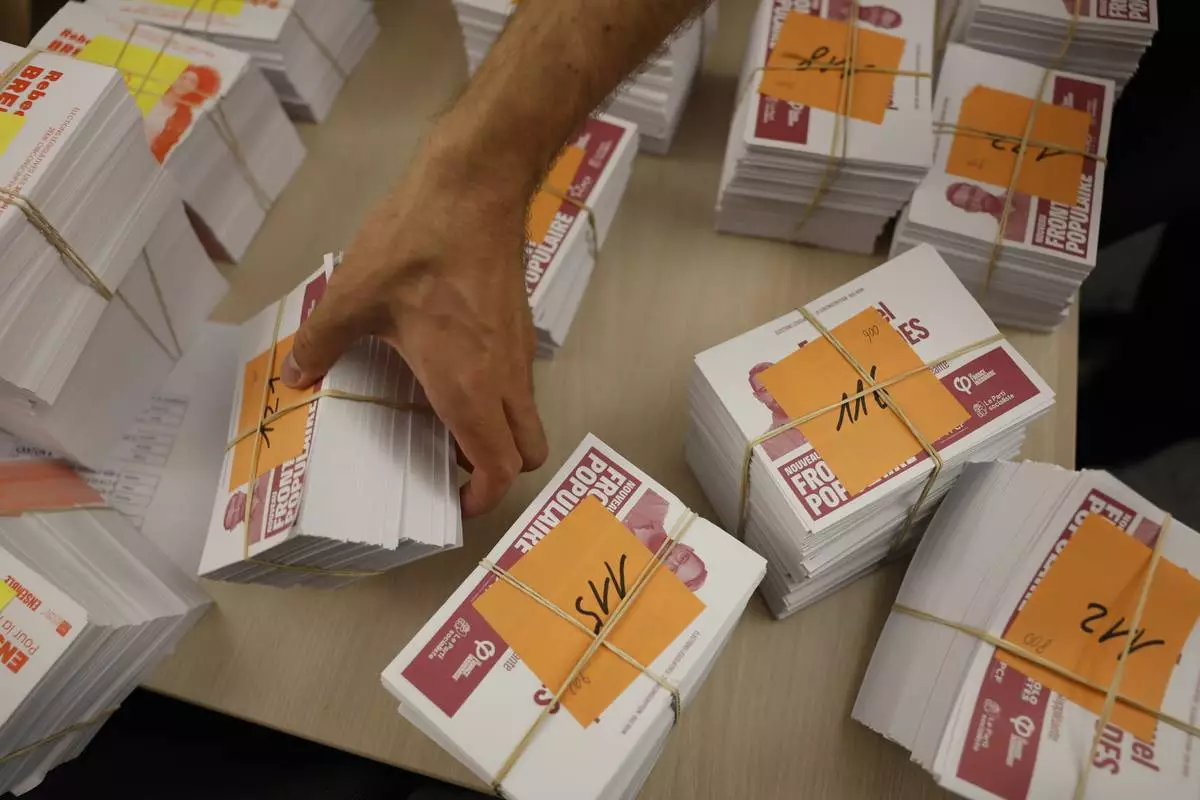
Local city officials prepare voting kits for the legislative election in Strasbourg, eastern France, on Saturday, July 6, 2024. Voters face a decisive choice in the runoff Sunday of snap parliamentary elections that could produce the country’s first far-right government since the World War II Nazi occupation. (AP Photo/Jean-Francois Badias)
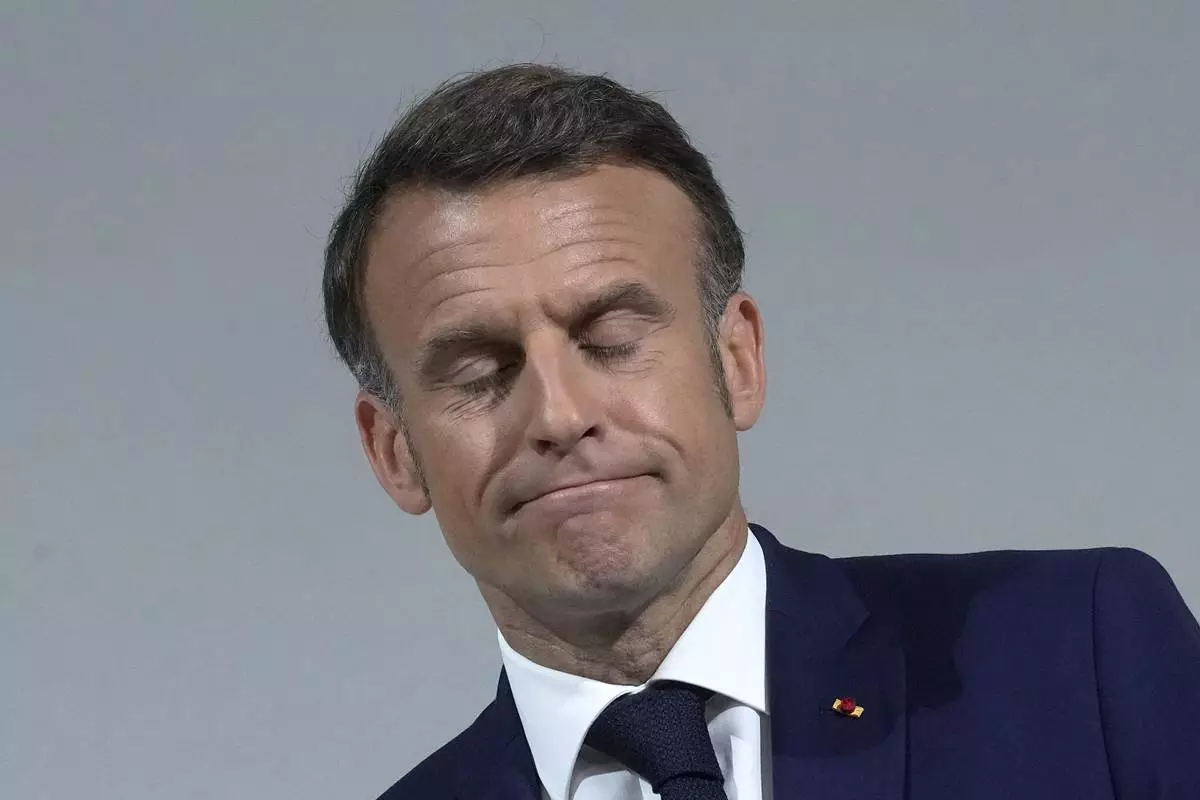
FILE - French President Emmanuel Macron reacts as he delivers a speech, Wednesday, June 12, 2024 in Paris. French President Emmanuel Macron's expected political failure in decisive parliamentary elections Sunday may paralyze the country, weaken him abroad and overshadow his legacy, just as France is about to be in the global spotlight as host of the Paris Olympics. (AP Photo/Michel Euler, File)
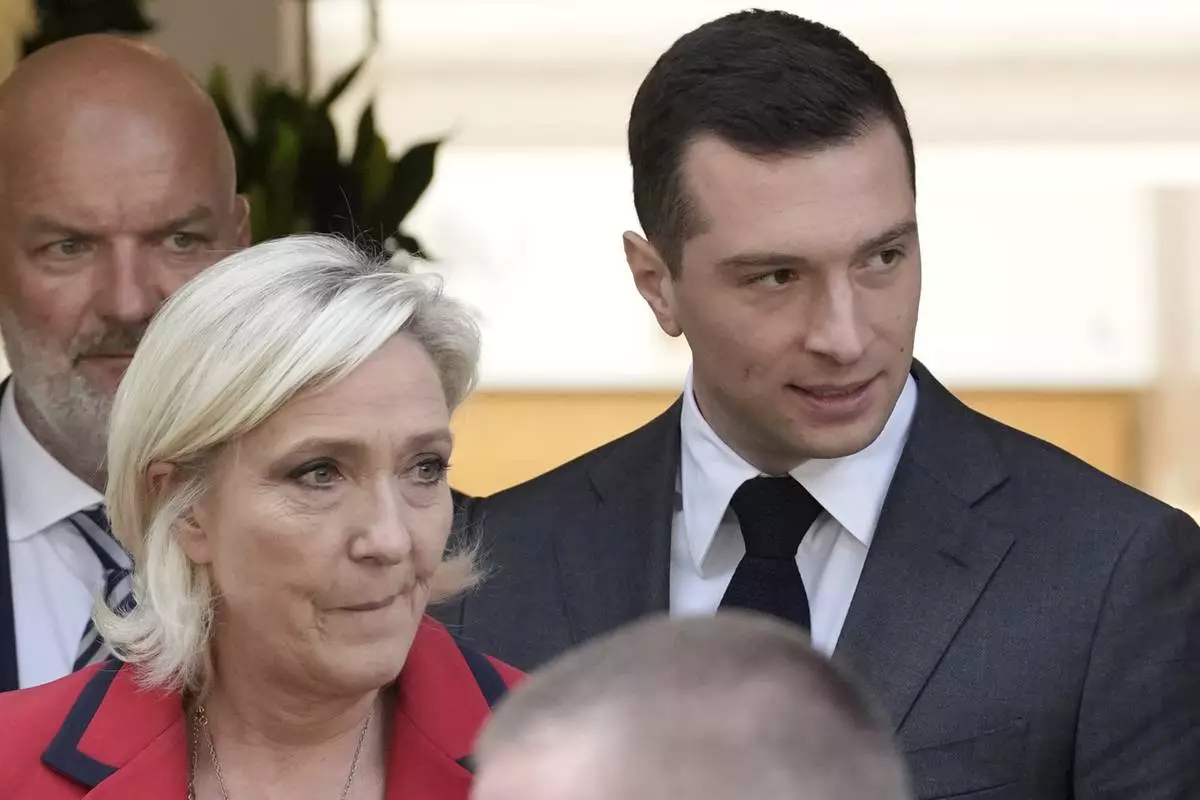
FILE - Far-right National Rally party president Jordan Bardella, right, leaves with far-right leader Marine Le Pen after a press conference, Monday, June 24, 2024 in Paris. Both Le Pen and Bardella have made clear that, in power, they would seek to rein-in Macron and exert themselves in defense, European and foreign affairs decision-making. (AP Photo/Christophe Ena, File)




